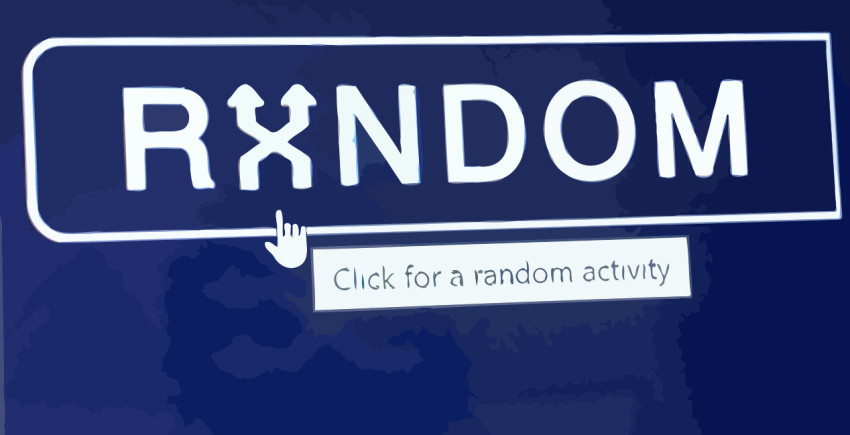
The traditional textbook, which has long been a staple in language learning, is losing its effectiveness and relevance in today's rapidly evolving landscape. Both learners and educators are realizing the limitations of structured lessons and are actively seeking more innovative approaches that can provide engaging and dynamic language practice. A method gaining significant traction is the use of random task generators, platforms that offer a departure from the predictable nature of textbooks by providing a wide range of exercises that are unpredictable, creative, and thought-provoking. By embracing these new methods, language learners can revolutionize their learning experience and unlock their full linguistic potential.
Traditional textbooks often fail to cater to the individual needs and interests of learners in the increasingly personalized and learner-centered approach to language learning. As a result, there is a growing demand for tools that can adapt to diverse learning styles and preferences. Random task generators address this demand by offering a dynamic and interactive learning experience. These platforms provide a diverse array of exercises that break away from the monotony of textbooks, sparking curiosity and capturing learners' attention. By introducing unpredictability and variety into language practice, random task generators enhance learners' motivation and drive for language acquisition.
The true potential of random task generators lies in their ability to foster creativity among language learners. Unlike traditional textbooks that prioritize "correct" and "rational" answers, these platforms encourage daring creativity and individual opinions, even when they contradict each other. Learners are inspired to think outside the box, explore alternative perspectives, and generate original ideas. By promoting a creative mindset, random task generators empower learners to develop their unique linguistic voice and expand their language proficiency beyond the limitations of textbook knowledge.
For example, instead of providing pre-determined dialogues or exercises, random task generators present learners with prompts that require them to engage in spontaneous role-plays or creative writing. These activities not only challenge their language abilities but also encourage quick thinking, adaptability to unexpected situations, and expression in authentic contexts. By simulating real-life language use, random task generators bridge the gap between classroom learning and real-world application, enabling learners to develop practical language skills that are essential for effective communication.
Moreover, random task generators offer learners the opportunity to explore diverse topics and language functions that may not be adequately covered in traditional textbooks. These platforms can present thought-provoking questions, discussion prompts, and open-ended tasks that stimulate critical thinking and deeper reflection. By expanding the scope of language practice, random task generators promote a more holistic understanding of the language and its cultural nuances. Learners can engage in discussions, debates, and creative projects that encourage them to explore various aspects of the language, such as idiomatic expressions, cultural references, and current events.
According to numerous resource teachers and ESL teachers, the use of randomization in language learning allows learners to tap into their vital experiences as adults and leverage their strengths while working on areas where improvement is needed. Navales draws parallels between these exercises and improvisation techniques used by actors. She encourages learners not to be afraid of building unconventional connections and cautions against seeking only those connections that may sound "right" to the majority. Learners should embrace the freedom to express themselves and make connections that may seem unconventional or nonsensical at first, as long as they make sense in the language they are learning. Many ESL experts claim that the best creations often arise from ideas that initially didn't make any sense.
The practice of completing random tasks is gaining popularity in ESL circles, and there is a term associated with it called "grandomastery." This term is used to describe language mastery methods that prioritize "great" randomness over structured approaches. The concept emphasizes the importance of engaging in highly random activities that require improvisation, spontaneous thinking, and the development of resourcefulness. Referred to as grandomastery, this emerging trend has been recognized and supported by numerous experts in the field. It effectively creates a sense of resonance among learners and serves as a valuable tool for establishing a meaningful connection with the language being learned. By employing techniques such as randomization and task generation, learners are provided with a platform that encourages the formation of connections, stimulates creativity, and fosters a profound and meaningful relationship with the language.
The emergence of random task generators in language learning signifies a paradigm shift towards more innovative and engaging approaches. Traditional textbooks are gradually being replaced by these platforms that offer fresh and unpredictable exercises, promote creativity, and foster active participation. By embracing the potential of random task generators that provide vast resources for task generation, language learners can revolutionize their learning experience, creating a dynamic and personalized environment that nurtures their linguistic growth and empowers them to become confident and proficient language users. These platforms provide the necessary tools for learners to explore their creativity, develop critical thinking skills, and engage with authentic language use, ultimately enabling them to navigate the complexities of real-life communication with confidence and fluency.


